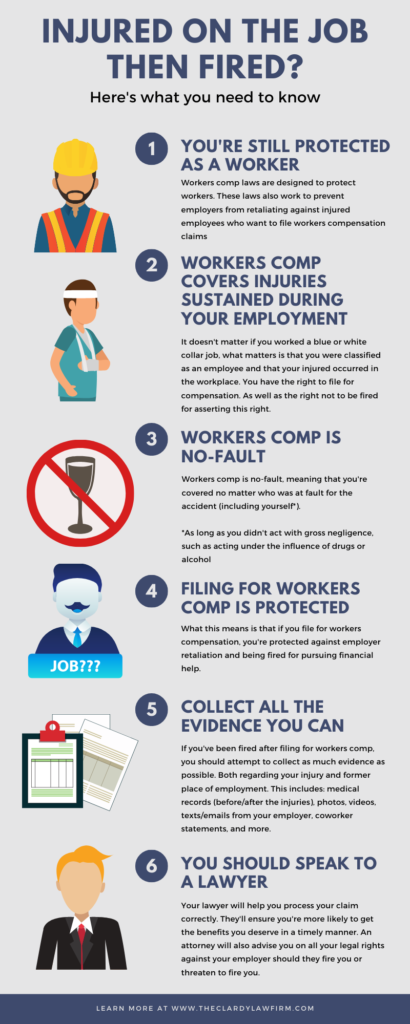Work injuries can be life-altering events for employees in terms of both their physical health and overall well-being. According to 2022 statistics, the top three leading causes of disabling workplace injuries in the United States were overexertion from external sources (21.76%), falls on the same level (17.67%), and being struck by objects or equipment (9.76%).
Laws and regulations exist in all states to safeguard workers’ rights when they suffer injuries while on the job. Workplace safety measures aim to minimize accidents while not entirely eliminating risk. In this blog post, we will discuss why employee rights must be protected following work injuries as well as what steps employees can take to secure them.
Workers’ Compensation
Workers’ compensation plays an integral part in protecting employees injured on the job. This legal framework ensures employees injured on the job receive specific benefits, such as financial support for medical expenses, lost wages, and rehabilitation services, regardless of fault. Navigating this complex system may prove daunting for injured employees, so it is imperative that they promptly report workplace injuries to their employers and seek necessary medical treatment without delay. Legal assistance may be invaluable in protecting rights and expediting this process.
Seeking Legal Assistance
In cases where employers or insurance companies deny workers’ compensation benefits or attempt to avoid their responsibilities, seeking legal assistance becomes crucial.
Experienced workers’ compensation lawyers can help injured employees navigate the legal processes, collect evidence, negotiate with insurers, and represent them in court when necessary. By engaging legal representation for themselves and protecting their rights, injured workers can level the playing field and ensure their rights are protected.
So if you reside in Arizona, for instance, you might consider reaching out to professionals like those at Arizona Injury Law Group for expert guidance in handling workers’ compensation claims effectively within your jurisdiction. Their legal expertise can make a significant difference in securing the benefits and rights you deserve after a workplace injury.
The Role of Employers
Employers play an essential role in protecting employees after work-related injuries. Employers are legally obliged to maintain a safe working environment, provide proper training and safety equipment for injured workers, and report workplace incidents to relevant authorities as soon as they occur. Failure to fulfill these responsibilities could have legal consequences or penalties applied accordingly.
Disability Discrimination
It’s essential for employees to understand that if they get injured while working, their employers are not allowed to treat them unfairly. Unfair treatment includes giving them lower positions, firing them, or not helping when necessary (e.g., providing special accommodations).
If an employee feels that their employer is treating them unfairly due to a workplace injury, knowing their rights is vital to taking appropriate action, and seeking legal advice is imperative to protecting themselves against discrimination or unfair treatment. Legal representation will provide employees with protection from unlawful discrimination while guaranteeing their rights are upheld in the workplace.
Being aware of these rights empowers employees to maintain a safe and fair work environment, especially when they face the challenges of workplace injuries.
Retaliation
Employees should remain vigilant about their rights when it comes to workers’ compensation claims. Legally, employers are prohibited from retaliating against employees who file such claims, whether through demotion, harassment, or termination.
If an employee suspects any form of retaliation, it is crucial to meticulously record all adverse actions taken against them. Additionally, they should promptly seek legal counsel to safeguard their rights and ensure that they are treated fairly within the legal boundaries established to protect workers.
Return to Work
Work injuries often result in temporary or permanent disabilities that impede employees from returning to their prior positions. Employers have an obligation to provide reasonable accommodations or modified duties for disabled employees without creating undue hardship for themselves or for others. Should an employer refuse, legal representation should be sought immediately to defend rights and explore possible solutions.
Additionally, employees who suspect their employers of violating safety standards may report them directly to OSHA. OSHA can investigate the workplace, issue fines against violators, and require corrective measures to be put in place, providing employees with a safer working environment.
Time Limitations
Employees must understand the time limits associated with filing workers’ compensation claims. While these regulations vary by jurisdiction, in many instances, there is a statute of limitations within which an injured worker must report and file their claim. Failing to do so within this specified timeframe could mean forgoing benefits altogether. Protecting your rights requires being aware of these time constraints and acting promptly to preserve them.
Documenting Injuries
To protect their rights and strengthen their workers’ compensation claims, employees should meticulously document their injuries, medical treatment, and all related expenses. This documentation can include medical records, photographs, witness statements, and communication with employers and insurance companies. Detailed records provide valuable evidence to support the employee’s case.
Wrapping Up
Workplace injuries can have devastating and long-lasting repercussions for their victims, altering lives in profound ways. Protecting employee rights after work injuries requires understanding workers’ compensation laws, seeking legal advice when needed, and being wary of discrimination and retaliation. Employers play an invaluable role in providing employees with a safe work environment and expediting the workers’ compensation process.
Employers and employees alike can take proactive steps to protect employee rights after work injuries by staying informed, taking proactive measures, and receiving the support necessary to recover quickly and resume livelihoods more easily.
Safeguarding employee rights after workplace injuries is a collective responsibility. When all parties fulfill their responsibilities, it leads to more just and equitable workplace conditions.


